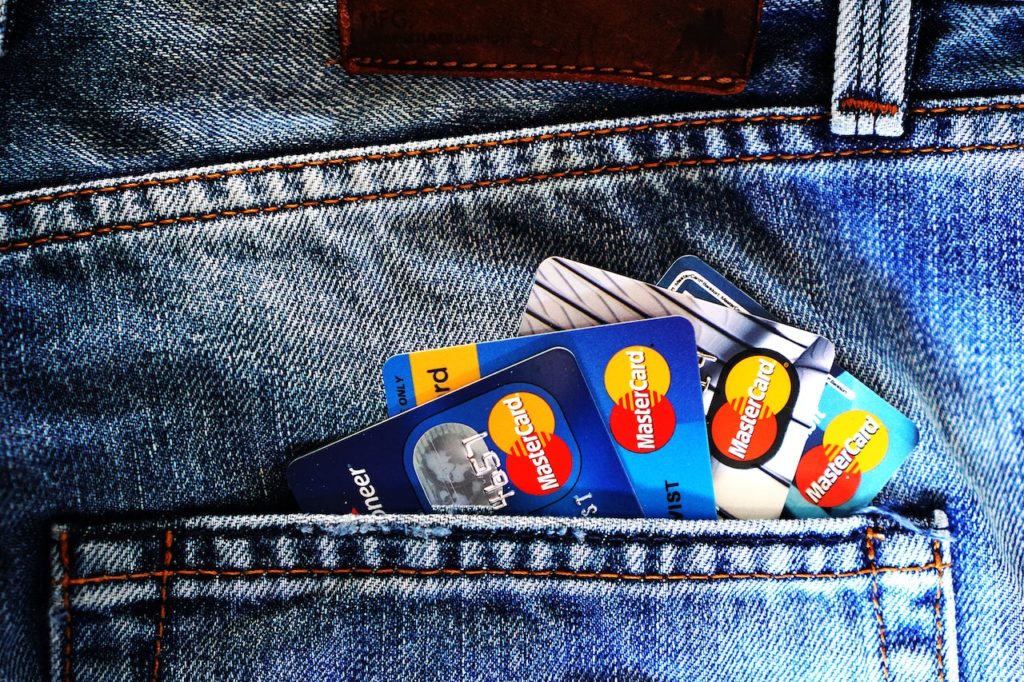Your credit score is important and you know it! Having a good credit score (higher is always better!) is a big advantage in getting approved on card or loan promos. It’s an important number that follows you around and for, those who like collecting points, helps a lot in getting the card with the best bonus points.
A good credit score also helps keep your interest rates low on any loans you take on, which in the long run, will help you save lots of money. In this article, we’re going to go over five ways to improve your credit score.
Credit Utilization
The absolute number one (1) tip to improve your score, surprisingly, is credit utilization. Make sure you manage this well. This one is something that most people don’t realize affects their score. While it is something you can pretty easily do accidentally, the impact that it has on your score is pretty big.
What does that mean? Are you saying that using my credits is going to hurt my credit score? Well, yes and no, to show a lender that you’re responsible with money, you have to actually use the credit they give you. But, you can’t use the credits too much. There’s a sweet spot to how much of your credit you should be using. That sweet spot is around five to twenty percent.
As an example, if you have $10,000 in available credits combined across all your cards, you want to be using at least $500 and up to around $2000. Simply, you can calculate this number by adding up all the balances that show up on your credit report and dividing it by the total credit available to you. If that number is between five and twenty percent, then you’re good and keeping it consistent within this range will help you improve your score over time.
Another good question would be, “If you have some big purchases one month and go over, say 35%. Is that going to hurt your credit score?” The short answer is: Don’t worry because your credit score is dynamic. It may fall slightly but this is only temporary. If you reduce your utilization after a few months, you should see your score rise again. That’s credit utilization, and you now know how much it affects your score. The utilization factor actually makes up about 30% of your overall score.
Average Age of Credit Accounts
The second tip (2) to improve your score, isn’t really something you can immediately change, but it is good to know in case you’re thinking of canceling any cards you have sometime soon. This factor is something that works in the long term and it speaks to the overall length of time that you’ve been using credit responsibly. It’s called the average age of accounts.
This number is a simple one and, as the name says, it’s simply the average age of all the credit files that you have. You can usually find the age of each account on your credit reports, indicated in number of months or years open. The higher the average age of accounts, the better and there’s no real secret on how you can improve this, except never closing your oldest credit card accounts, It’ll ensure that your oldest accounts keep increasing in age, which will help balance out any new credit cards that you’ll be opening.
Paying credit balances on time
Next tip (3 – and most important!) is to always pay your credit card balances on time. You should at the very least pay the minimum payment every month. Ideally, pay off all your balances in full so that you never incur any interest or late fees.
What if you forgot to make a payment by the due date? Will your credit score immediately go down? Well, not necessarily, credit card companies only report your delinquency to the bureaus if your payment is 30, 60, or 90 days late. If you make an accidental late payment, it’s still within 30 days of the deadline. You’ll just have to pay some interest and maybe a late fee, but your credit score won’t be impacted.
But, it’s still always our advise to pay off all your balances on time every month. Payment history is the most significant factor that makes up the largest chunk of your credit score. It makes about 35 percent.
The next tip will not only help boost your credits, but will also help if you’re planning to have multiple credit cards (maybe because you want to earn more points).
When you apply for a new mortgage, credit card, cell phone plan (or other loans), your credit reports will most likely show a hard inquiry. The lender examines your records and notes that you have requested additional credit. This action informs future lenders of the request. But, these hard inquiries only makes temporary impact on your credit score. They will have a minor negative impact for about six months.
Applying for credit at around the same time
If you’re planning to apply for multiple cards, you should (4) time a few credit card application together at around the same time, so that the impact of their new inquiries all happen along the same cycle. This way, your score will swing between the relative highs and the relative lows, and, during the highs, you’ll be more likely to be approved for any new credit cards that you have your eye on next. The hard inquiries factor makes up 15 percent of your credit score and can still have a meaningful impact to your overall credit score.

Have a good mix of credit
The next tip to raise your credit score, and this is something that’s going to be mostly down to your life circumstances and it’s not necessarily something that you’ll have much control over. It’s (5) having a good mix of credits. This means having many different types of credit like cell phone bills, lines of credits as well as secured loans like a mortgage. Having a diverse set of credit products that you use responsibly can help you as it makes up the last 10 percent of your credit score.
Check your credit score for free at many online sites.
And last but not the least, (6) always monitor your credit score. I monitor mine on a weekly basis. There are now a lot of free online resources that lets you see your credit score free of charge. It’s important to monitor your credit score regularly so you can catch any errors or potential identity theft as soon as possible.
To monitor my credit score, I use Borrowell. I’ve been with Borrowell for many years already so I can say they’re very legit. They send me a weekly email so I get reminded to check my score on a weekly basis. They also have a Credit Builder service that can help improve your credit score. Check them out.
Conclusion
Following the above tips will help you dramatically increase your credit score. With a higher credit score, you’ll have more options and better terms when it comes to borrowing money. You’ll also save money on interest charges over the long term. So take the time to improve your credit score and reap the benefits for years to come!

1 thought on “6 Simple Tips That Can Skyrocket Your Credit Score”